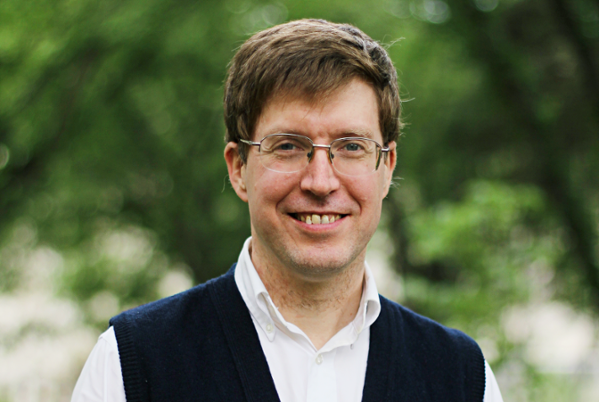
Summer Bootcamps
Throughout the summer, Professor Osgood will be teaching three different bootcamps regarding technology in the health care sector. Located at the University of Saskatchewan and in collaboration with the Saskatchewan Centre for Patient-Oriented Research, these boocamps are targeted at professionals from a variety of health fields, including health researchers, health administrators, public health workers, health decision makers, and any health professionals or modellers seeking empirical behavioural data.
Understanding Health Behaviour using Smartphones and Wearables
June 24-26, 2019
Acquisition of evidence-based understanding of human health behavior and exposure to environments forms a central focus of health research, and a critical prerequisite for effective health policy. The use of mobile devices to study health behavior via cross-linked sensor data and on-device self-reporting and crowdsourcing have been demonstrated to provide important insights that traditional techniques cannot. However, design, delivery and analysis of mobile data studies requires skills rarely developed in health science training.
This tutorial introduces public health researchers and practitioners to tools, practical skills and the conceptual background required to collect and analyze mobile data on health behavior and assists participants in getting started in applying such techniques to studies and applications of specific interest to them. This tutorial will include hands-on work with novel and standard tools and techniques.
Bootcamp on Combining Data Science and Systems Science for Health
July 29 - August 2, 2019
Over the past decade, public health and health care decision making has increasingly been impacted by the growth of two recent, versatile, and deep computational traditions: Data Science and Systems Science. Each of these traditions offer great promise for both sharpened understanding of traditional health questions and assistance in addressing complex health challenges confronting the nation and the world.
While both Systems Science and Data Science represent cutting-edge computational traditions that offer great promise for fine-temporal grained longitudinal understanding across multiple pathways of complex systems, these two traditions are typically pursued in parallel rather than in a joint manner. Within this bootcamp, we will discuss and provide a means of tapping the great promise of cross-leveraging Systems Science techniques (in the form of dynamic modeling) and Data Science, particularly emphasizing the role of cross-linking models with "big data" offering high volume, velocity, variety, and veracity. To that end, this bootcamp will systematically survey well-tested approaches for combining of Systems Science techniques (in the form of dynamic modeling) and rich data sources, particularly emphasizing means of cross-linking models with big data offering high volume, velocity, variety, and veracity.
While some of these linkage methods will be simpler -- such as model parameterization with dynamic network data and calibration of models to empirical evidence gathered via big data -- most involve leveraging of machine learning techniques such as via Hidden Markov Models, Particle Filters, Markov Chain Monte Carlo, Particle Markov Chain Monte Carlo, and Deep Learning methods. Coverage of the overwhelming majority of the methods presented will include 1) a health application case study 2) conceptual background in the major methods used 3) an exemplar implementation that can be adapted by participants 4) provision or access to codebases or libraries implementing the underlying methodology. In many cases -- such as with smartphone-based data collection, twitter harvesting, and google search query volumes -- the bootcamp will further provide participants with access to tools or codebases to collect such data, together with examples of such data and analyses using it.
Agent Based and Hybrid Modeling for Health Researchers
August 19-24, 1029
The Agent-Based and Hybrid Modeling Bootcamp for Health Researchers is an intensive, hands-on tutorial that seeks to provide health science researchers with a systematic, practical, and accessible introduction to agent-based and hybrid system science modeling for health and health care, using familiar language and concepts. This year's bootcamp will focus on agent-based modeling, but with a particular emphasis on insightful, practical and performant hybrids with System Dynamics modeling and discrete event modeling.
Using lectures and guided exercises, the tutorial will introduce a broad set of topics in agent-based and especially hybrid modeling, offer optional material for those seeking additional depth of coverage, and emphasize the complementary insights when agent-based and hybrid modeling is combined with traditional health sciences approaches. Course material is drawn from the instructor's semester-long interdisciplinary courses at MIT and the University of Saskatchewan, as well as previous bootcamps, including those hosted at UCLA, University of New South Wales, NCSU/UNC, Flinders University, Deakin University, and the Sax Institute. The optional final day of the bootcamp will give participants the opportunity to brainstorm with the instructor and teaching assistants concerning ideas for modeling projects, and to discuss concrete design and implementation strategies for those projects.
Instructor Biography

Dr. Nathaniel D. Osgood is a Professor in the Department of Computer Science and Associate Faculty in the Department of Community Health & Epidemiology at the University of Saskatchewan. His research is focused on providing cross-linked simulation, ubiquitous sensing, and machine learning tools to inform understanding of population health trends and health policy tradeoffs. His applications work has addressed challenges in the communicable, zoonotic, environmental, and chronic disease areas. Dr. Osgood is further the co-creator of two novel mobile sensor-based epidemiological monitoring systems, most recently the Google Android- and iPhone-based iEpi (now Ethica Health) mobile epidemiological monitoring systems. He has additionally contributed innovations to improve dynamic modeling quality and efficiency, introduced novel techniques hybridizing multiple simulation approaches and simulation models with decision analysis tools, and which leverage such models using data gathered from wireless epidemiological monitoring systems. Dr. Osgood has led many international courses in simulation modeling and health around the world, and his online videos on the subject attract thousands of views per month. Prior to joining the U of S faculty, he graduated from MIT with a PhD in Computer Science in 1999, served as a Senior Lecturer at MIT and worked for a number of years in a variety of academic, consulting and industry positions.

